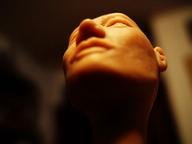Quiz Answer Key and Fun Facts
1. Who wrote an essay titled "What is Enlightenment" (written originally in German)? He thought that his age was starting the emancipation of human consciousness from an immature state of ignorance.
2. Most 'philosophes' or Enlightenment thinkers did not hold public office.
3. Which Enlightenment thinker was skeptical of the divine right of monarchs and praised small republics as the nurseries of public virtue? This thinker also admired the ancient city-state of Sparta as a model for his own time and thought small city-states were the most ideal form of political community.
4. Which of these Enlightenment thinkers did not make bitter attacks on Christian theology or the corruption of Christian churches?
5. Which of the following Enlightenment thinkers was not religious?
6. Many of the written works of Enlightenment philosophers found their way onto the Index of Prohibited Books of the Roman Catholic Church.
7. Which of the following Enlightenment thinkers was NOT from the upper professional or elite classes?
8. Which French Enlightenment thinker espoused a clear-cut sexual division of labor, asserting that public life should be for men while women were to follow the path of private virtue, modesty and child-rearing?
9. Which Enlightenment thinker condemned judicial torture and the death penalty as cruel and inefficient?
10. Which enlightened despot abolished serfdom and the death penalty in his empire?
Source: Author
seeker77
This quiz was reviewed by FunTrivia editor
bloomsby before going online.
Any errors found in FunTrivia content are routinely corrected through our feedback system.

